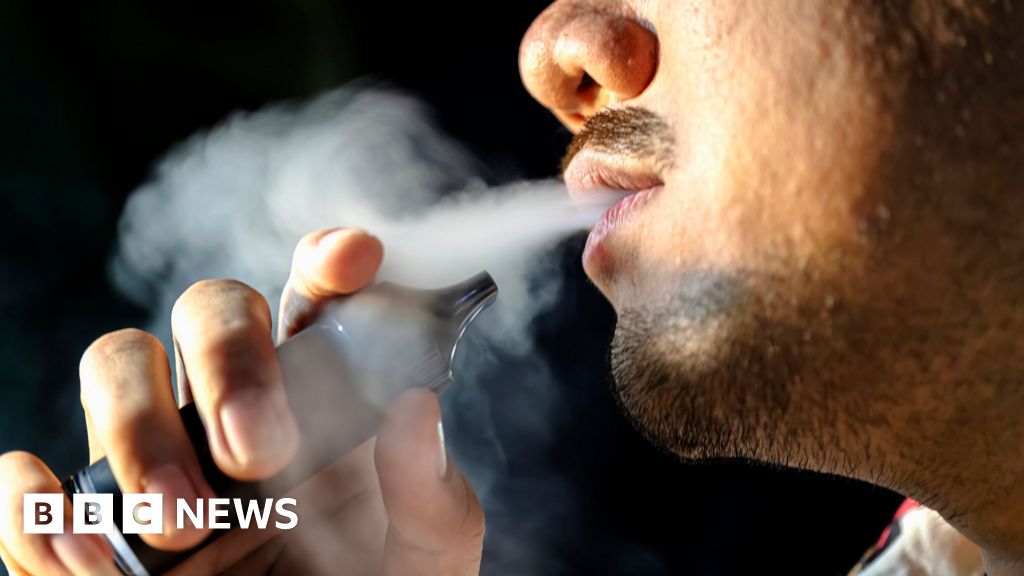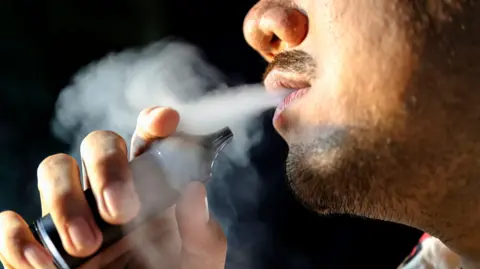Singaporean authorities have announced tougher penalties for vaping as they try to crack down on the increasing use of drug-laced vapes in the country.
These include stiffer fines, longer jail terms, and even caning. Foreigners may also be deported.
While Singapore was one of the first places in the world to ban vaping in 2018, the practice has persisted, and in recent months the city-state has seen a rise in popularity of vapes laced with etomidate, an anaesthetic drug.
This has caused widespread alarm in the country, which has some of the world's toughest drug laws.
In recent months, authorities have acknowledged the growing prevalence of etomidate-laced vapes, more popularly known as Kpods in Singapore. The nickname is short for ketamine pods and refers to how etomidate has similar effects to ketamine.
A test of a random sample of 100 seized vapes in July found that a third contained etomidate.
Videos of teenagers and young adults acting erratically in public while vaping have also gone viral on social media, sparking concern among Singaporeans who widely support the country's tough penalties on drug trafficking and use.
Health Minister Ong Ye Kung stated that the tougher laws were needed as vapes have become a gateway for very serious substance abuse where the devices have become delivery devices for drugs.
The government has sharpened its penalties for vaping while reclassifying etomidate as a Class C controlled drug for six months. The new rules will come into effect on 1 September.
Those caught vaping—even if they use regular vapes—will face increased fines starting from S$500 (£288; $390) and state-mandated rehabilitation. The penalties will be even harsher for those caught with etomidate-laced vapes.
Suppliers of drug-laced vapes will face up to 20 years in jail and 15 strokes of the cane.
Foreigners working in Singapore will not only face the same penalties but also risk getting their residential and employment permits revoked, and may be deported and banned from re-entering the country.
The rules also apply to tourists. Signs will be placed throughout Changi Airport reminding visitors of the vaping ban, along with vape disposal bins so that users can get rid of their devices without facing penalties.
The rules are intended as an interim measure for the next six months while the government develops new laws to tackle etomidate and any other drugs that could be delivered through vapes. Authorities have also launched public health campaigns encouraging citizens to stop vaping.

















